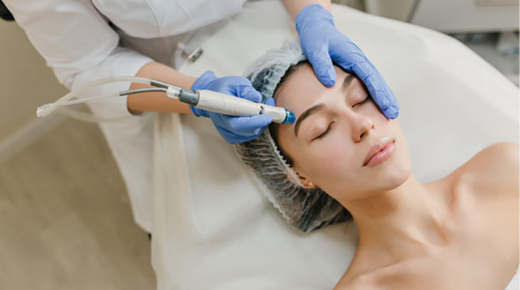Professional Plastic Surgery – A Comprehensive Guide to Expertise and Care
1. Introduction to Professional Plastic Surgery
Professional plastic surgery encompasses a wide range of procedures aimed at enhancing or restoring appearance and function. These surgeries are performed by highly trained and certified plastic surgeons.
2. The History of Plastic Surgery
Plastic surgery has a rich history dating back centuries. Ancient civilizations practiced basic reconstructive techniques, but modern plastic surgery as we know it began to develop in the early 20th century.
3. The Role of a Plastic Surgeon
Plastic surgeons are medical professionals specialized in procedures that alter and restore the human body. Their training includes rigorous education and extensive practical experience.
4. Common Types of Plastic Surgery
There are two main categories of plastic surgery: reconstructive and cosmetic. Reconstructive surgery addresses physical abnormalities, while cosmetic surgery focuses on enhancing appearance.
5. Reconstructive Surgery Procedures
Reconstructive surgery includes procedures like breast reconstruction after mastectomy, cleft lip and palate repair, and reconstructive surgeries following trauma or cancer.
6. Cosmetic Surgery Procedures
Cosmetic surgery encompasses procedures such as facelifts, rhinoplasty (nose jobs), liposuction, and breast augmentation, aimed at improving aesthetic appeal.
7. The Consultation Process
A professional plastic surgery consultation involves discussing goals, assessing health and medical history, and creating a personalized surgical plan tailored to the patient’s needs.
8. Choosing the Right Plastic Surgeon
Selecting a board-certified plastic surgeon ensures that the surgeon has met stringent education and training requirements, providing a higher standard of care and safety.
9. Pre-operative Preparations
Pre-operative preparations are crucial for successful plastic surgery. These include medical evaluations, quitting smoking, and following specific instructions from the surgeon.
10. The Importance of Realistic Expectations
Having realistic expectations is key to a satisfactory outcome. Surgeons help patients understand what can be achieved and set realistic goals based on individual circumstances.
11. Risks and Complications
All surgeries carry risks, including infection, scarring, and anesthesia complications. A professional plastic surgeon discusses these risks and ensures patients are fully informed.
12. Recovery and Aftercare
Recovery times vary depending on the procedure. Proper aftercare, including following post-operative instructions and attending follow-up appointments, is essential for optimal healing.
13. Advances in Plastic Surgery Technology
Technological advancements have significantly improved plastic surgery techniques. Innovations like laser treatments, 3D imaging, and minimally invasive procedures enhance results and reduce recovery times.
14. Non-surgical Cosmetic Procedures
Non-surgical options, such as Botox, dermal fillers, and chemical peels, offer alternatives to surgery with shorter recovery periods and less invasive methods.
15. The Psychological Impact of Plastic Surgery
Plastic surgery can have profound psychological effects, boosting self-esteem and confidence. It’s important for patients to have a positive mindset and realistic outlook.
16. Cost of Plastic Surgery
The cost of plastic surgery varies widely depending on the procedure, surgeon’s expertise, and geographic location. Patients should consider all financial aspects, including potential financing options.
17. The Role of Plastic Surgery in Trauma Recovery
Plastic surgery plays a critical role in trauma recovery, helping restore appearance and function for individuals who have suffered injuries from accidents or burns.
18. Pediatric Plastic Surgery
Pediatric plastic surgery addresses congenital abnormalities such as cleft lips and palates, helping children lead healthier and more normal lives.
19. Plastic Surgery for Cancer Patients
Cancer patients often require reconstructive surgery post-treatment. Procedures like breast reconstruction and facial reconstruction are integral parts of their recovery process.
20. Innovations in Reconstructive Techniques
Innovations in reconstructive techniques, such as tissue engineering and microsurgery, have expanded the possibilities for restoring form and function in patients.
21. Celebrity Influence on Plastic Surgery
Celebrities often influence trends in plastic surgery, with many people seeking procedures to emulate the looks of their favorite stars.
22. Ethical Considerations in Plastic Surgery
Ethical considerations are paramount in plastic surgery. Surgeons must ensure procedures are performed for the right reasons and prioritize patient well-being over profit.
23. The Global Perspective on Plastic Surgery
Plastic surgery is a global field, with different countries contributing unique techniques and approaches. The international exchange of knowledge helps advance the practice worldwide.
24. The Future of Plastic Surgery
The future of plastic surgery holds exciting possibilities with ongoing research and development. Advances in stem cell therapy and regenerative medicine may revolutionize the field.
25. The Art and Science of Plastic Surgery
Professional plastic surgery combines art and science to enhance and restore the human body. With skilled surgeons, advanced technology, and comprehensive care, patients can achieve their desired outcomes and improve their quality of life.

